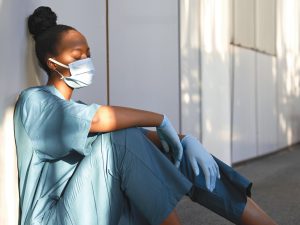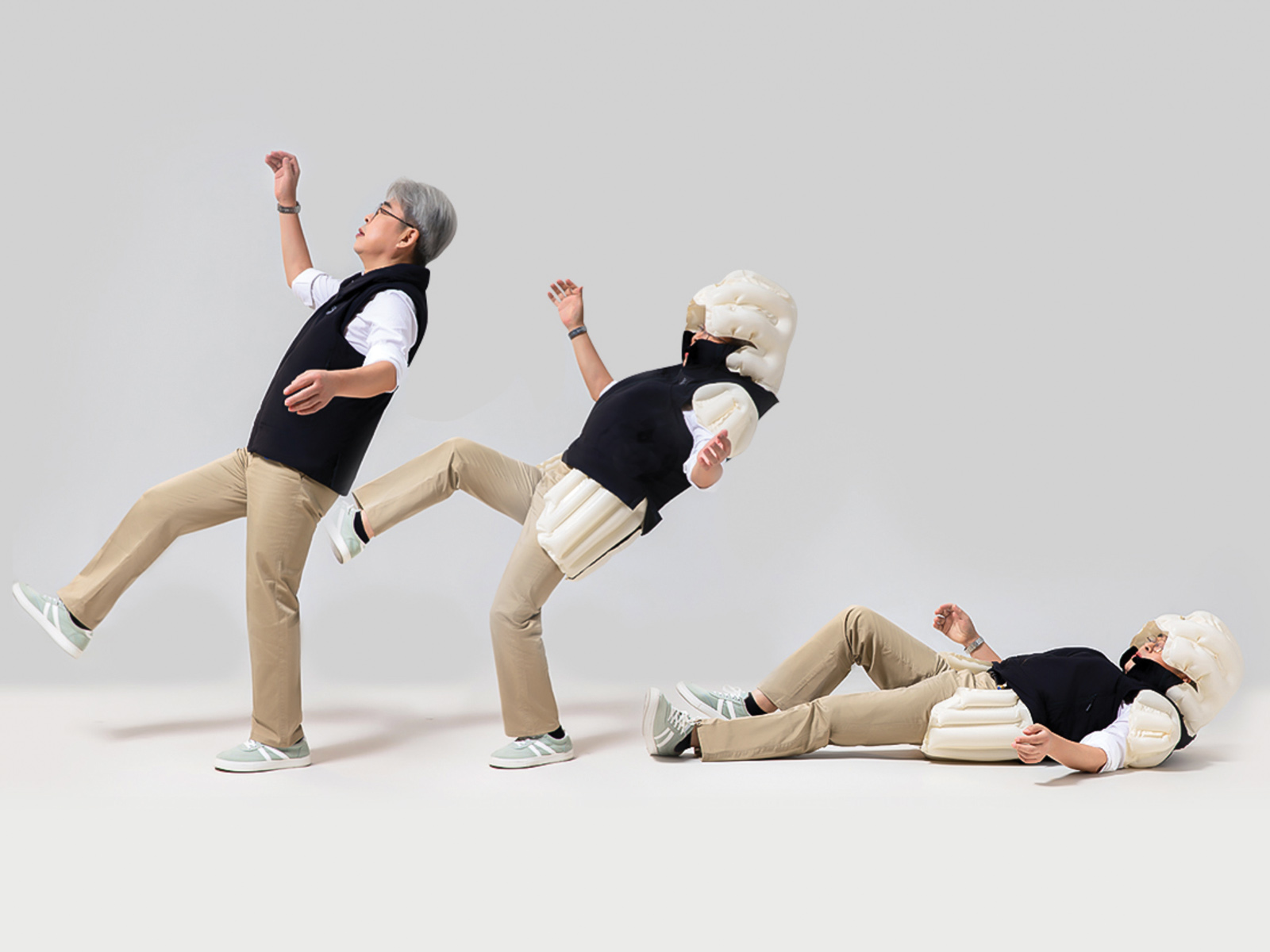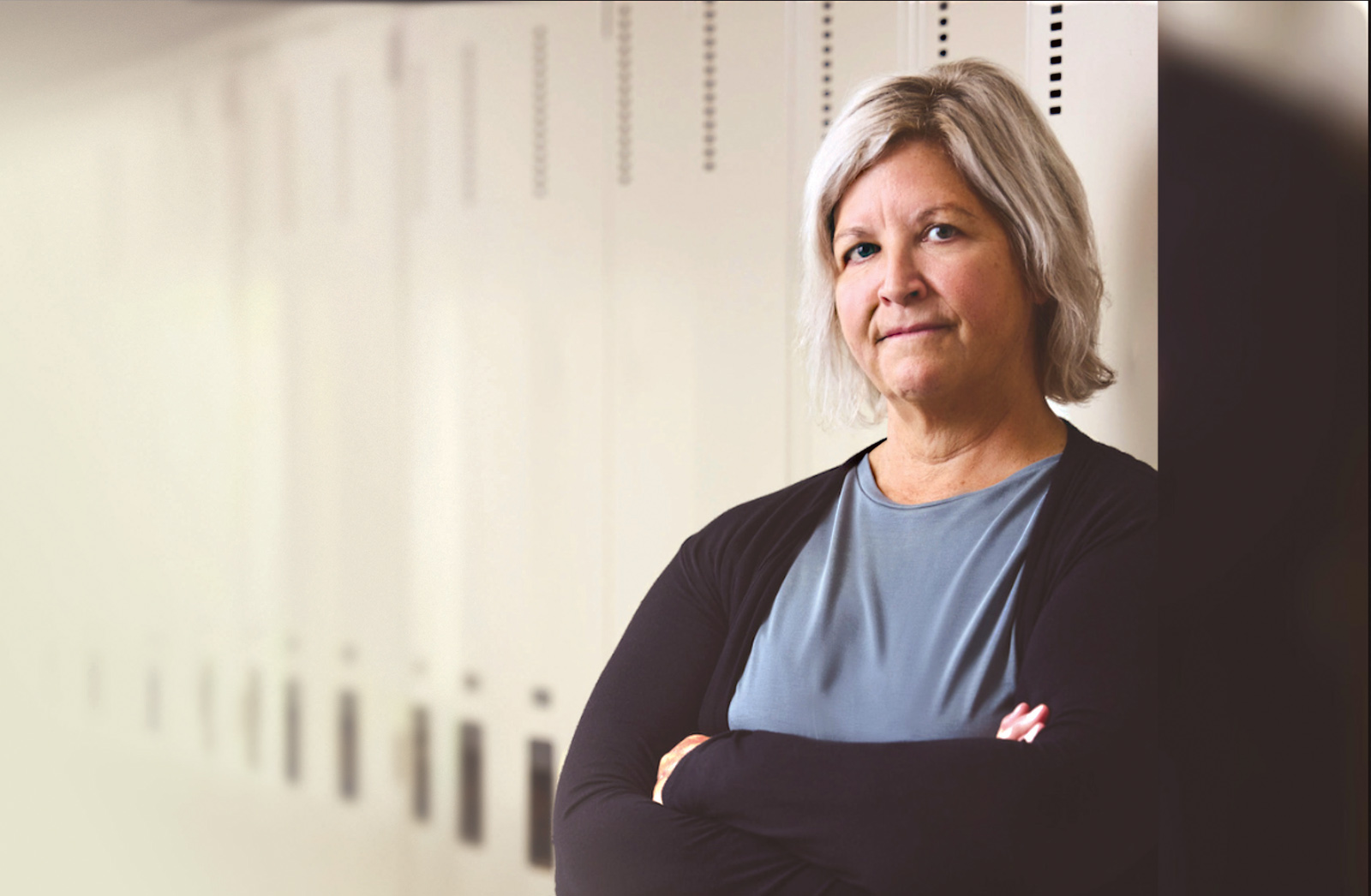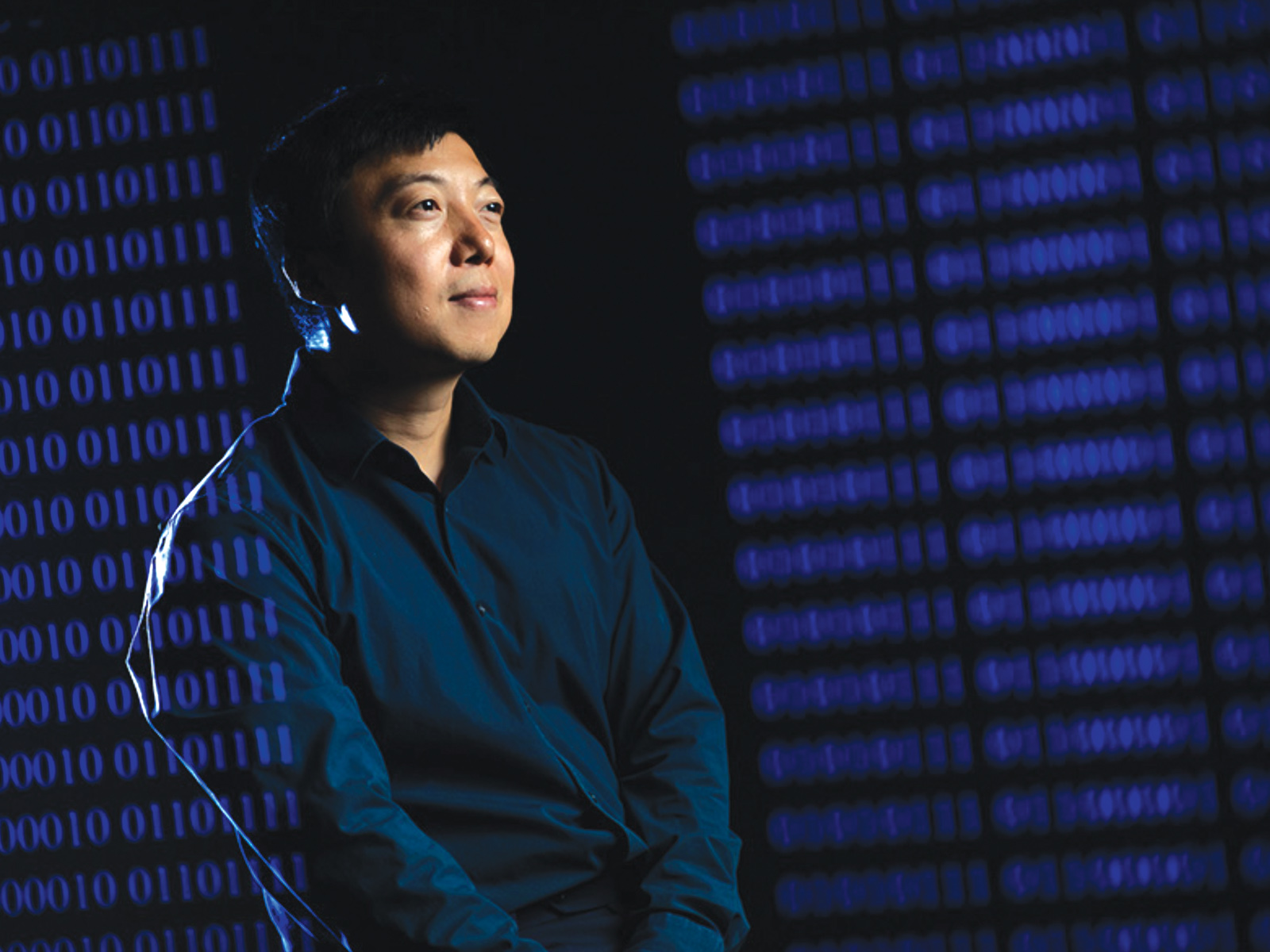By Irene Galea
When Dr. Vera Krejcik isn’t reading up on existentialism and psychotherapy or spending time with her dog, an albino half-Chihuahua half-Yorkie named Leila, she can be found hiking up Sulphur Mountain in Banff or the Grouse Grind in Vancouver. If you didn’t know her, you might miss that she has physical disabilities.
In 2011, shortly before beginning a residency in internal medicine at the University of Calgary, Krejcik underwent an elective surgery for an arteriovenous malformation—a tangled mass of blood vessels in her brain. During recovery, she suffered a stroke and lost full control of her left arm and leg. She spent the following five months in hospital, re-learning how to walk and talk, and the subsequent year at home in Cochrane, near Calgary, doing semi-guided physiotherapy. “There was a period there, particularly when I was really sick, where I thought, ‘Oh no, I’ll never be able to get back into medicine,’” she says. “That was a tragic thought.” But she did get back to medicine. And when she returned to work, Krejcik switched her residency focus to psychiatry. She now spends most of her time on research and patient therapy, speaking with people about their histories and caring for those in hospital.
Plenty of Krejcik’s patients have asked about her disability. “It’s interesting for me when very unwell patients with psychosis start to notice that I am disabled,” she says. “Early on, if they’re quite unwell they may not even realize, but as they get better they become curious and start asking questions. For me, that’s a sign of wellness.”
A need for advocacy
Krejcik’s experiences have opened eyes to the need for advocacy for doctors with disabilities. “Every disabled physician I’ve come into contact with over the years…they’re some of the hardest working and most devoted people out there,” she says. “It’s sort of unfortunate in a way but, in my experience, they have a sense that they need to prove themselves. This tends to manifest itself in excellent patient care, from what I’ve seen.” Because doctors with disabilities understand disability in a real way, they can better advocate for patients. This makes all the difference when it comes to connecting with people going through similar experiences. “I have a sense that there’s an unspoken understanding between a physician with a disability and a patient,” says Krejcik, speaking from her own experience. “With me, I go into the room with a limp, and it’s quite clear. Over time, patients get to know me and see that I too have gone through difficulties.”Although doctors with disabilities have proven to be valuable additions to hospitals, there is very little information available about their prevalence.Statistics on doctors with disabilities in Canada are scarce, but a 2016 study published by the journal Academic Medicine based on US statistics found that only a third of medical schools asked said outright that they could accommodate a student with a disability. Information for prospective students with disabilities was difficult to find on 42 per cent of medical school websites; on 16 per cent of websites, there appeared to be no information at all.
Growing support
Progress may be slow, but even slow improvement is something. In Canada, support for doctors with disabilities is growing. In Krejcik’s case, the University of Calgary was forthcoming with accommodations. The university set her up with dictation software and a phone with a dictation program. It also allowed certain accommodations—particularly, doing away with the night-shift requirement. Krejcik no longer does overnight on-call shifts. “After the brain surgery, I’m predisposed to seizures. I definitely don’t have 24-hour work stamina,” she explains. “By waiving that and allowing me to be on call in a modified form, I’ve been helped a great deal.” Krejcik points out, however, that she still sees many barriers preventing people with disabilities from following their passion for medicine. She names a list of areas in her own hospital where she sees physical barriers.“With a paralyzed arm, little things that you don’t think about are really difficult—like holding or flipping through a chart, or even just hole punching. Automatic doors are scarce at best—that’s something that’s been a challenge for me at times. We don’t have a lot of ramps, and elevators are really problematic,” says Krejcik, who hopes to see an improvement in these areas going forward.
A lack of accommodations
Often, the thing holding people with disabilities back from pursuing a career in medicine isn’t their disabilities, but a lack of accommodations and physical accessibility features. Take, for example, Tegan Nethersole. The Chatham-Kent Health Alliance nurse is completely deaf in one ear and uses an amplified, Bluetooth-enabled stethoscope that was provided by her hospital. She says that getting even that was difficult, and that she has had to advocate for herself to hospital boards for every accommodation she has sought. “You would think that they would be more understanding. I’m not trying to call out the hospital, but it’s the truth,” the nurse says. “Everything I’ve gotten, like my stethoscope, I’ve had to fight for myself. ”It is people like Nethersole for whom Krejcik hopes to be a spokesperson. Following her surgery, Krejcik became involved with the Canadian Association of Physicians with Disabilities (CAPD) and was elected its president in 2012. With the CAPD, she aims to stand up for greater accommodations for people with particular needs in the years to come. As of right now, she thinks that Canadian hospitals have a long way to go. Krejcik plans to finish her psychiatry residency and practice in Canada. She can be found hiking mountains, book in hand, trailed by her dog and the memories of her accomplishments thus far.
Irene Galea is a student and writer living in Toronto, Ontario. She is currently pursuing a Bachelor of Journalism at Carleton University. In her spare time, Irene enjoys blogging, being outside and having interesting conversations with strangers.














